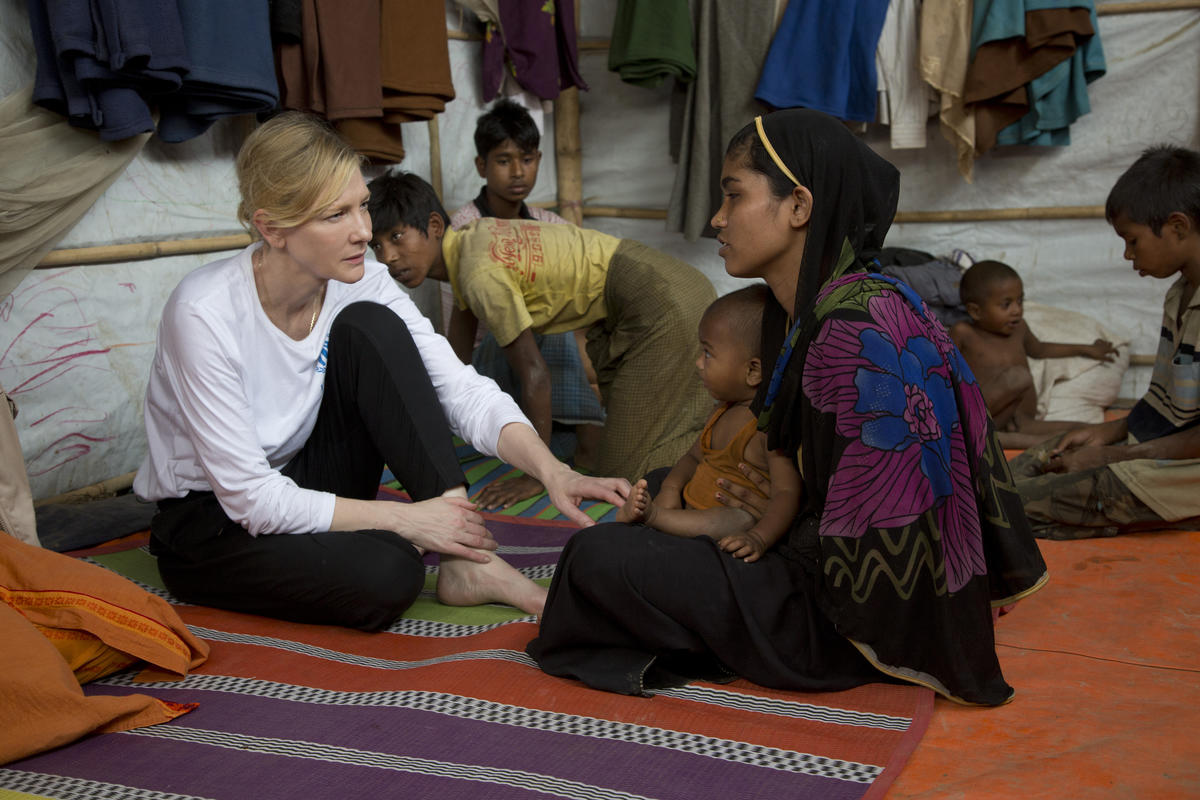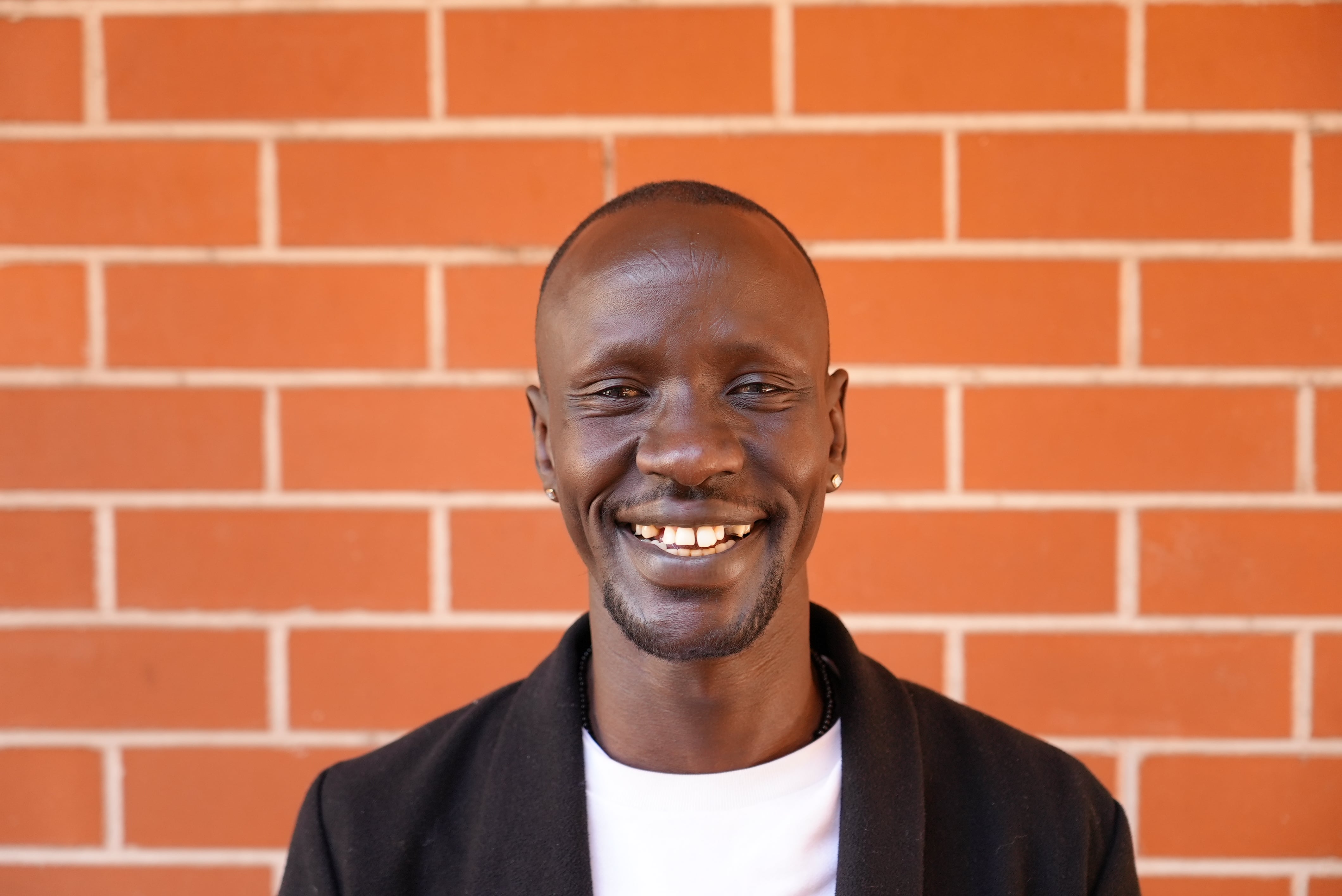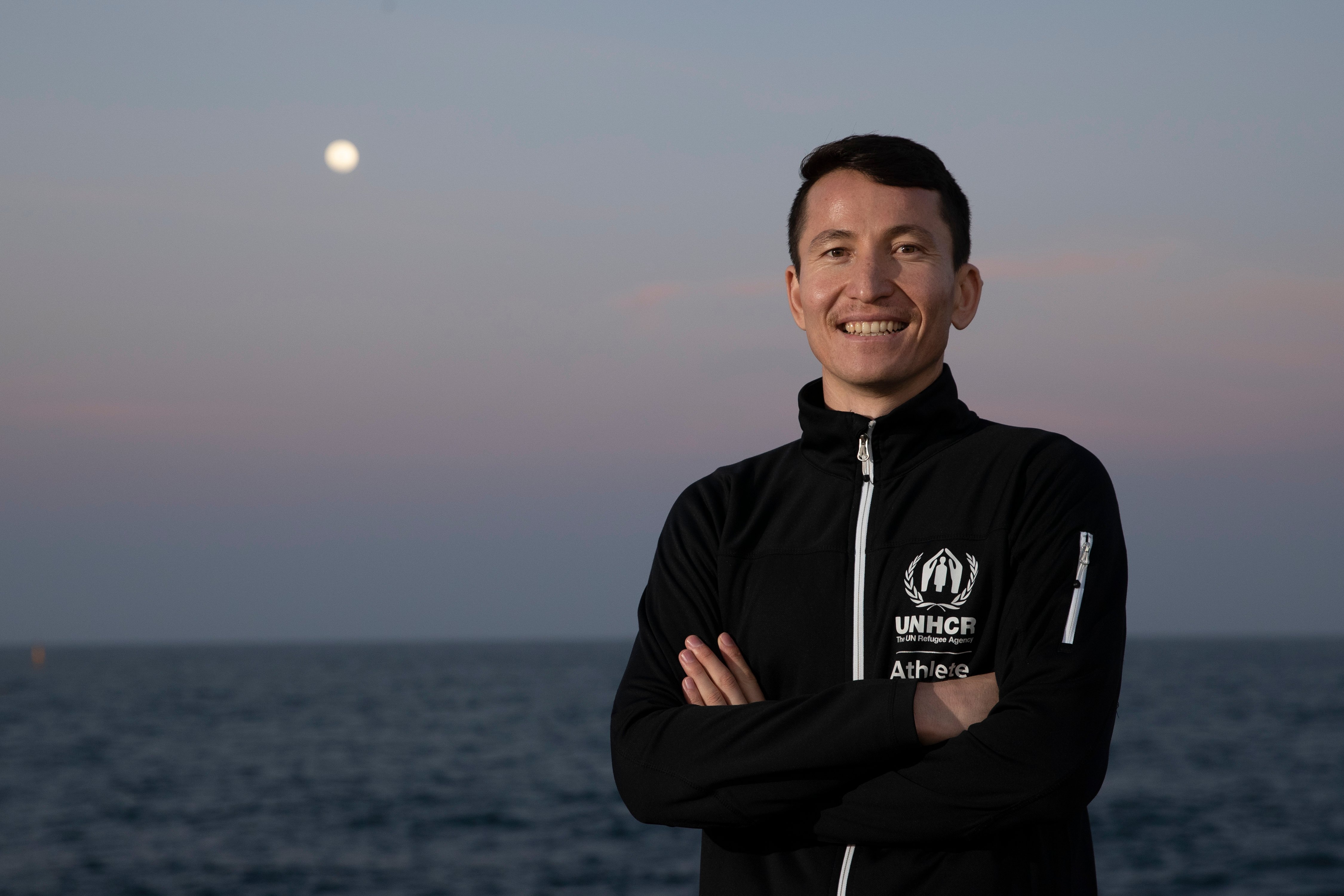'I've been there. I've been in your shoes, just like you.'

'I've been there. I've been in your shoes, just like you.'
Born in Eritrea in eastern Africa, Ibrahim Omer became a refugee when he fled to neighbouring Sudan in 2003. After five years in a refugee camp, he was resettled to New Zealand in 2008. Initially working as a low-wage cleaner, he persevered in his dreams of pursuing university studies and went on to earn a bachelor’s degree in Political Science. In 2020, Ibrahim Omer was elected as a Member of Parliament, becoming New Zealand’s first African MP.
UNHCR Regional Representative Louise Aubin spoke to Ibrahim Omer about his incredible journey from life in a refugee camp to public office.

Louise: Kia ora. Ibrahim Omer, you’re a very newly elected representative of New Zealand in the parliament. Ground-breaking news for many reasons, mainly because of your inspiring and remarkable life journey. And I’m honoured to be able to have this interview with you!
Ibrahim: Thank you for having me. And what an honour for me to conduct an interview with UNHCR, an organization that once when I was in trouble, facing deportation to a place where I could potentially lose my life, stood up and saved me.
Louise: I’ll start by saying that one of the things that we need to dispel very quickly is that no one chooses to be a refugee.
Ibrahim: I had a typical happy upbringing by many standards. I loved playing football on the streets, going to school. When things changed in Eritrea, I decided to leave all these beautiful things behind and run away to save my life… knowing the journey ahead was risky.
Louise: You claimed asylum in Sudan and were recognized as a refugee. But, while that in and of itself is lifesaving, it’s not life-making. Contemplating a future was probably very complex?
Ibrahim: First it’s all about staying alive. You go into the refugee camp, get asylum and you’ve got safe haven for the time being… It is all just temporary… there’s no contemplation of future, it is just a day to day survival.
And that is why a lot of people take risky journeys... You have all these dreams growing up as a kid. And when you see that your dreams are being crushed, you just want to take risks to keep this alive.
Actually, my friends encouraged me to go to Libya with them. The only thing that stopped me from going was getting a job in a refugee camp as an UNHCR interpreter.
Louise: Can you say a little bit about that experience?
Ibrahim: It reflects a volume about how a small act of kindness in one’s life can change another person’s life for the better. And for me, it happened when I was asked to interpret for someone at UNHCR.
I remember the guy. I told him I was contemplating to go to Europe. He said, “You must be mad, even if you make it, you might not get asylum, they might not accept you!” I said, “What options do I have?” The next day he called me and asked me to work with him... That’s how it started. I was a team leader at one point in charge of about 65 interpreters. It was life changing for me. I still have the recommendation letters of employment that I got from UNHCR. It’s one of the sentimental things that I held on to.
Louise: You came to New Zealand, what was going through your mind?
Ibrahim: New Zealand came out of nowhere. After being detained, a protection officer organized for me to talk to New Zealand Immigration. I was asked if I would come to New Zealand if I was accepted. I had never heard of New Zealand before. So, I said, “Well, tell me about it.” [New Zealand Immigration] said “It’s one of the safest countries in the world.” I told him, “Then that’s where I want to go.” I’m one of the lucky few, a lot of people don’t get the chance to be resettled.
Louise: When a small country like New Zealand doubles its refugee resettlement quota, it’s a very positive message. It’s a way of leading by example.
Ibrahim: We’ve doubled the quota from 750 to 1500. If you’re asking me as a former refugee with the crises that we have, it’s not enough and we have an opportunity to do more. But as a country with limited resources, I think it’s a very brave step.

Louise: One of the remarkable things about New Zealand is how the community comes together. I’m sure your Prime Minister’s strong leadership in the wake of the Christchurch mosque shootings must have impacted you.
Ibrahim: I came to New Zealand because I wanted to be safe. And I thought that was taken away from us. At the beginning… I thought, “Am I again going to have to look over my shoulder?” However, the terrorists who designed the attack to turn the country against each other turned out instead to be a unifying force… I couldn’t be prouder of my country, my people, and our leader.
Louise: In your maiden speech, you described yourself as someone who was a low-wage worker, a refugee, someone who was put before very difficult choices but was given opportunities. And all those things seem to resonate in the kinds of policies that you want to represent in parliament.
Ibrahim: When I first started cleaning and doing security, I thought it was going to be six months. Low wages meant that by the end of the week, I didn’t have any money to save. And that’s why I ended up picking up another full-time job, doing 80 hours. Low wages are restricting… I can see how tough it is. My message to those who are in refugee camps all over the world is that while it’s probably hard hearing a message from this comfortable office in Parliament, I’ve been there. I’ve been in your shoes, just like you… Never give up on hope.









